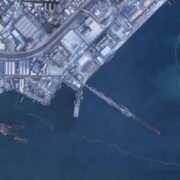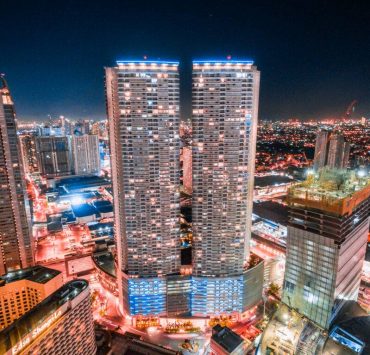Lawmakers caution Recto vs creating new taxes
Lawmakers on Saturday cautioned newly installed Finance Secretary Ralph Recto against imposing new taxes in his effort to raise P4.3 trillion in government revenues this year.
What Recto should give attention to is improving tax collection efforts and plug the “leakages” from state coffers due to corruption, according to Senate Minority Leader Aquilino Pimentel III.
Pimentel said the minority bloc would support Recto’s efforts to raise revenues but the Department of Finance (DOF) should not create new taxes, especially those considered “indirect taxes” which would burden every Filipino.
Wealth tax
“Those that impose taxes for every activity of the people—we should avoid them,” he said.Value added tax (VAT), sales and service tax, and fuel excise are examples of indirect taxes, which are collected by the government from producers or retailers but are passed on to consumers in the final purchase price for goods.
“In case there will be a need to impose new taxes, these should be in the form of direct taxes, such as tax on luxury goods, as this only burdens those who are fond of luxury items. There is even this so-called wealth tax,” Pimentel said.Stringent tax collection
Sen. Sherwin Gatchalian believes that as a former legislator with years of “political and practical” experience, Recto will not push for new taxes and instead focus on improving tax administration by implementing a more stringent tax collection campaign and improving the tax payment processes.
He said he spoke with Recto after his former Senate colleague took his oath as finance secretary on Friday before President Marcos.
“He told me ‘we [in government] should be sensitive to the present situation of our people and not unabashedly come up with new taxes especially that we are just coming out of a pandemic,’” Gatchalian said, quoting Recto.
Suggested priorities
Albay Rep. Joey Salceda, an economist and the House ways and means committee chair, said the new finance chief should prioritize the implementation of urgent tax reforms to improve the government’s revenue stream.
Salceda said Recto “knows what is proper in principle and pragmatic in practice” with his experience in crafting tax measures as a lawmaker for three decades.“He takes office at a time when administrative reforms like the ease of paying taxes are already enacted. So, he can focus on tax policy reforms,” Salceda said. “I hope he prioritizes three of the most urgent tax policy objectives.”
He suggested that Recto prioritize the implementation of the VAT on digital services, as the Philippines is in the “awkward position” of being the first to propose the VAT on digital services but the last in the region to actually pass the tax measure.
The House tax panel chair also stressed the need to work on reforms in electronic commerce, which he noted “escapes the reach of taxation more easily.”
Salceda said the government needed reforms, such as reconsidering the minimum threshold value for imported goods to be exempted from paying duties, requiring e-commerce platforms to ensure tax compliance by their sellers and creating mechanisms for cash-on-delivery transactions.
‘Tax cheats’
Mr. Marcos swore in Recto and his new presidential adviser on investment and economic affairs, Frederick Go, at Malacañang on Friday.
When asked by reporters if he had ordered Recto to study new tax reforms, the President said he did not want to preempt his new finance chief in making any announcements regarding that matter.
But he said he told Recto to be “at the forefront” of the antismuggling drive and to pursue “tax cheats, starting with the habitual ones who have raised tax evasion not just to an art but into a business.”
Recto, who is leaving his post as a congressman of Batangas province, told reporters that this year the target collection for the Bureau of Internal Revenue (BIR) would be about P3 trillion, P1 trillion for the Bureau of Customs (BOC) and P300 for the National Treasury.
Plug, not squeeze
Pimentel pointed out the need to widen the tax base. “All that the (BIR) and the (BOC) keep on doing is a constant attempt to squeeze from those who are already paying taxes,” he said.The government’s efforts should shift to going after those who had long evaded paying taxes to plug the leakages, he said.
“The DOF should also watch out for and stop the leakages, which commonly occur through graft and corruption,” Pimentel said.Gatchalian also supported a more focused anticorruption campaign “because admittedly, there are still many of our government personnel who are unscrupulous.”
As finance chief, Recto would be heading the administration’s economic team, which includes Go, Budget Secretary Amena Pangandaman, Socioeconomic Planning Secretary Arsenio Balisacan and Trade Secretary Afredo Pascual.Mr. Marcos said at a news briefing on Friday that he wanted his economic managers to ensure food security to make prices of commodities affordable as the country recovers from the lingering impact of the pandemic and inflation.
“Any economy or any economic manager in any country is now really focusing on the problems that inflation has brought,” he added.
Debt-to-GDP ratio
Mr. Marcos admitted that he was worried about the country’s debt-to-gross domestic product (GDP) ratio during the start of his administration.
This was 60.9 percent when he took office, which is above the 60-percent threshold deemed manageable for developing economies like the Philippines.A huge debt could divert government funds to debt payment instead of increased spending to energize the economy. The Treasury data in the third quarter last year showed the debt-to-GDP ratio dipped to 60.2 percent. INQ

















